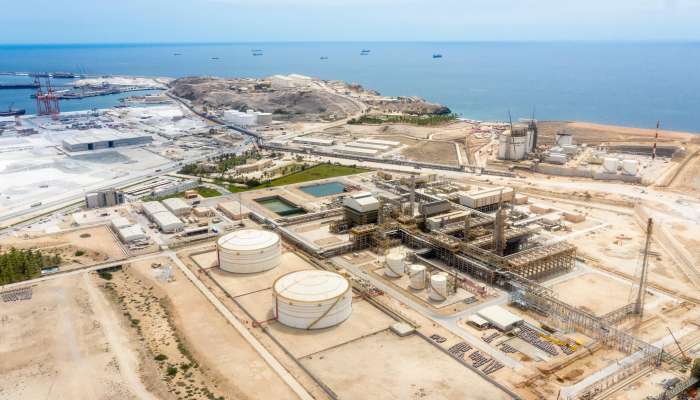In July 2024, public revenue in Muscat totaled RO 7,154 million, slightly lower than the RO 7,183 million recorded during the same period in 2023. The reduction was primarily due to a decrease in gas and current revenues. However, net oil revenue saw a significant increase of 9% to RO 4,038 million, compared to RO 3,714 million in 2023. This was attributed to the methodology implemented by Energy Development Oman (EDO) for collecting oil revenue and managing cash flow. The average realized oil price was US$83 per barrel, with an average oil production of 1,002,000 barrels per day.
On the other hand, net gas revenue declined by 18% to RO 1,090 million in July 2024, compared to RO 1,329 million in 2023. This decrease was due to a change in the methodology for collecting gas revenue. Current revenue also experienced a decline, totaling RO 2,012 million, down by RO 120 million from the previous year. In terms of public spending, it reached RO 6,754 million by the end of July 2024, an increase of 4% compared to the same period in 2023. This rise was driven by an increase in development spending and contributions and other expenses budget- items.
The current expenditure of civil ministries in July 2024 was RO 4,808 million, slightly lower than the previous year. However, the development expenditure of ministries and government units totaled RO 653 million, representing 73% of the total development spending allocated for 2024, which was RO 900 million. Additionally, total contributions and other expenses amounted to RO 1,243 million, showing a 46% increase compared to the same period in 2023.Social protection system subsidy, electricity sector subsidy, and oil products subsidy were also reported, with amounts of RO 326 million, RO 286 million, and RO 174 million respectively by the end of July 2024.This data paints a picture of the fiscal performance of Muscat as of July 2024. Despite a slight decrease in public revenue, there was a significant increase in net oil revenue, offsetting the decline in gas revenue. The methodology implemented by EDO played a crucial role in managing cash flow and collecting oil revenue efficiently. However, changes in the gas revenue collection methodology led to a reduction in net gas revenue.
The increase in public spending was mainly driven by development spending and other expenses, indicating a focus on long-term growth and investment. The current expenditure of civil ministries remained relatively stable, while the development expenditure accounted for a significant portion of the total spending allocated for 2024. The rise in contributions and other expenses highlights the importance of social protection subsidies, electricity sector subsidies, and oil products subsidies in supporting the economy and the well-being of the people in Muscat.
Overall, the fiscal performance of Muscat in July 2024 demonstrates a balanced approach to managing public revenue and spending. While challenges such as the decline in gas revenue were present, the increase in net oil revenue and a focus on development spending indicate a commitment to sustainable growth and financial stability. By continuing to monitor revenue streams, manage expenditures efficiently, and prioritize strategic investments, Muscat can ensure continued economic prosperity for its residents and the country as a whole.










